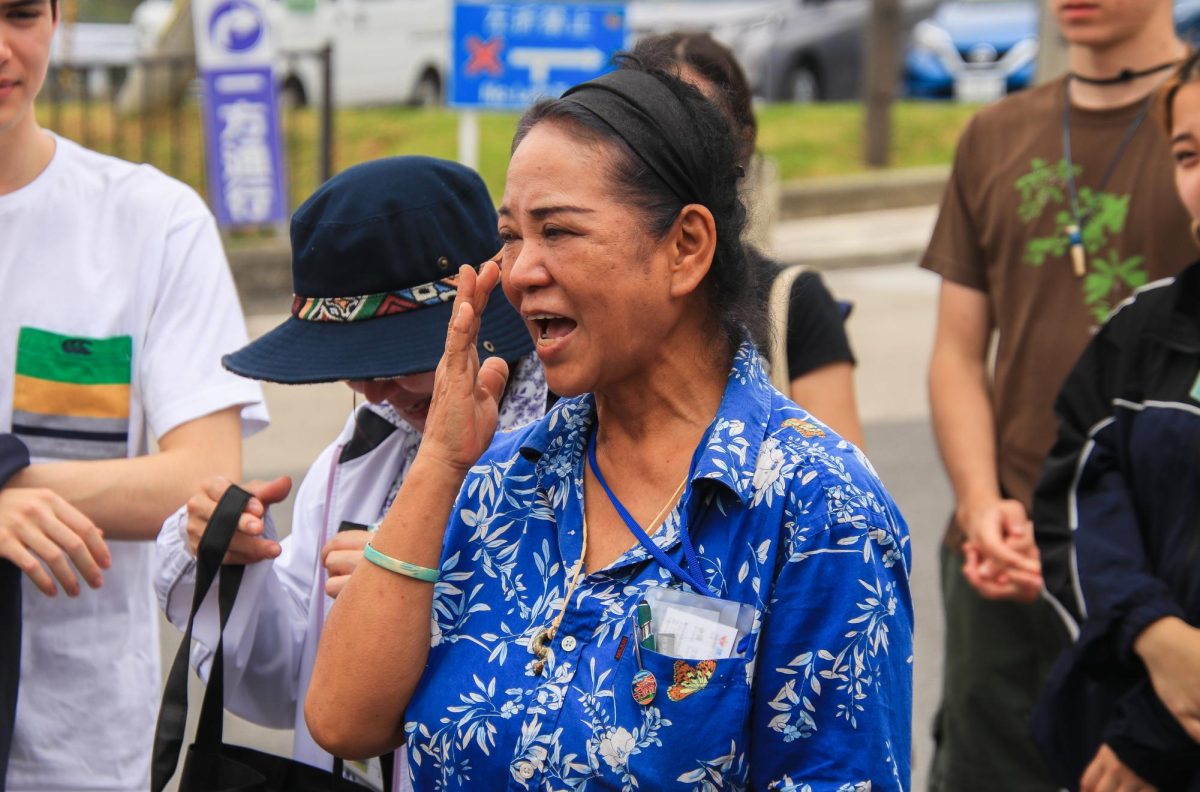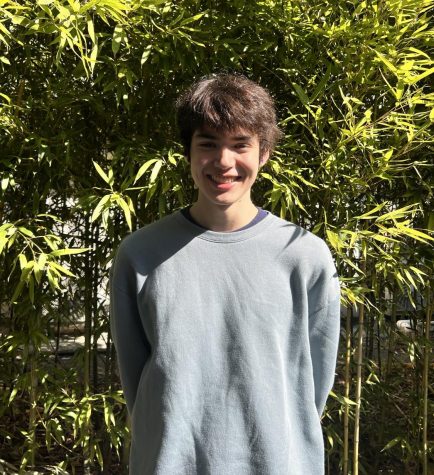On just 0.6% of Japan’s total landmass, Okinawa hosts 70% of all domestic U.S. bases. An overwhelming military presence threatens the peace and sovereignty of its civilians—expressly with regard to sex crimes, safety hazards, and environmental concerns—and is the remnant of a lost world war. Most residents consider the concentration of American bases “unfair.” Local guide and activist Ms. Higa Ryouko begs all who learn of Okinawa’s plight, “Tell your friends and family—that’s all I ask.”
In the weeks following the Japan Seminar trip to Okinawa, our class did as Ms. Higa asked. We shared harrowing accounts of wartime terror, and recounted the complexities of East Asian affairs and American diplomacy to our peers, our teachers, and our grandparents. Yet in retrospect as a graduate, I cannot help but feel that we did not do enough.
What I recognize now that I should have long ago is the proximity to which ASIJ operates with both the U.S. and Japanese governments. In March, we invited the embassy’s Marine Corps Military Attaché (an expert on and representative of U.S. defense) as a guest speaker to the Japan Seminar classes; at the Senior Banquet in late May, our graduating class heeded the remarks of a member of the Japanese Prime Minister’s Office, including a tailored message from Prime Minister Kishida himself; and just days later, a collection of fifty-some rising juniors, seniors, and college freshmen gathered at the lobby of the eight-story MOFA building for an hour-long “special event” with the Foreign Minister, Mr. Hayashi Yoshimasa.
The presence of U.S. representatives may not be particularly surprising; some fraction of students attending ASIJ are children of ambassadors and diplomats, their tuition often government subsidized. Rather, the connection I had failed to make in my years at ASIJ is that the school’s unique proximity to U.S. diplomats inevitably gives rise to exclusive opportunities to engage with Japanese politics.
Whereas World War II veterans in Okinawa—who bear the memories of the rise and growth of U.S. occupation over the islands—had not yet conferred with the current consul general of Naha (as of our visit in May), some ASIJ seniors have. During the week-long trip, Japan Seminar students sat around a well-furnished meeting room at the consulate for a fifty-minute Q&A session with Mr. Matthew Dolbow regarding his career, the particulars of his job, and the role of the consulate in Okinawa.
Those fifty minutes represent the sort of political access few Okinawans are granted, that many only dream of. Indeed, it is a privilege. These political engagements are unique opportunities.
ASIJ students are English-speaking, predominantly Japanese American, international youths. We have an assortment of backgrounds and perspectives that make us, in a way, linguistic mediators in discourses that have historically been conducted in English versus Japanese. In the context of U.S. foreign policy in Okinawa, in which protest is divisive by nature—owing to differences in ethnicity, nationality, language, culture, and education—ASIJ students are one of few populations that carry the particular traits of reconciliation.
Of course, no ASIJ class can adequately represent the views and demands of an Okinawan anti-base organization. I do not mean to suggest that our students should—or could—be substitutes in such dialogues.
The point is that ASIJ is itself a political identity. By attending this school, we become not only students, but distinct players on a political field. So when engaging with prominent figures and organizations, we ought to take advantage of this reality.
Yet time and again, my class failed to do so. At the Senior Banquet, when the presence of a member of the Japanese Prime Minister’s office was guaranteed, a student’s request for the premier of her documentary of our week-long excursion around Okinawa was denied on the grounds of political controversy; afterwards, a parent representative informed me it was due to “time constraints.”
Only days later, when seated in front of Foreign Minister Hayashi at the MOFA, our Q&A began with an unsuitably elementary lecture on “What is diplomacy?” and concluded with a pseudo-interrogative regarding the economic relationship between Japan and China. We were not informed beforehand that all our questions and his answers would be scripted.
When I reflect on these events, I cannot sincerely believe that our class took full advantage of the resources presented to us. And when I think of Higa-san, who so passionately—with tears in her eyes—asked us to make use of the knowledge she had bestowed upon us, I cannot help but feel that I have fallen short of my own moral criterion. My writing this is in some ways a consolation for this honest disappointment.
But if this article can serve an additional purpose, it should be a reminder, if not a wake-up call, for the sort and extent of privileges that ASIJ grants its students. You are never more than two connections away from a position of political power. Should you use that to your advantage, you will have made full use of your time in Japan.


